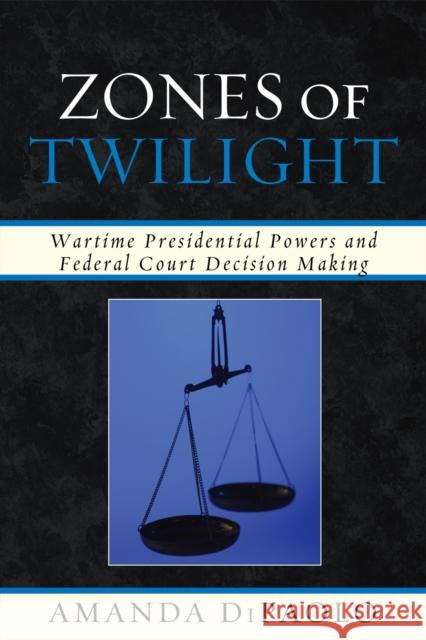Zones of Twilight: Wartime Presidential Powers and Federal Court Decision Making » książka
Zones of Twilight: Wartime Presidential Powers and Federal Court Decision Making
ISBN-13: 9780739138335 / Angielski / Twarda / 2010 / 262 str.
Zones of Twilight: Wartime Presidential Powers and Federal Court Decision Making
ISBN-13: 9780739138335 / Angielski / Twarda / 2010 / 262 str.
(netto: 529,38 VAT: 5%)
Najniższa cena z 30 dni: 514,34 zł
ok. 30 dni roboczych.
Darmowa dostawa!
The Bill of Rights was designed to protect the American public from encroachments of liberty by the federal government. During times of war, the president often spearheads efforts to limit rights in the name of national security. When these cases make their way through the federal courts system, it is expected that the judiciary would use rights-based language in their adjudication of cases dealing with such rights-based claims. Zones of Twilight shows that the courts actually use the separation of powers to decide these cases. In other words, the courts look to see if Congress has authorized the president to limit the liberties in question. More often than not, if Congress is on board, so are the federal courts. Although the common conception is that the courts give the president a blank check during war, it is in fact Congress that has received that blank check. Zones of Twilight looks at four reoccurring issues during times of war where the courts have had to decide cases where the executive has limited individual freedoms: military detentions, warrantless electronic surveillance, emergency economic powers, and free speech.











